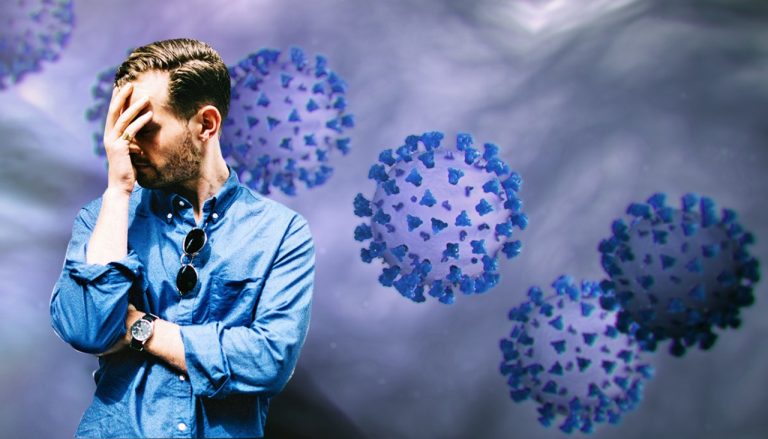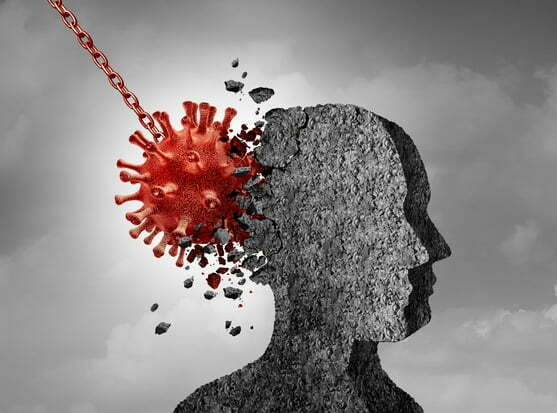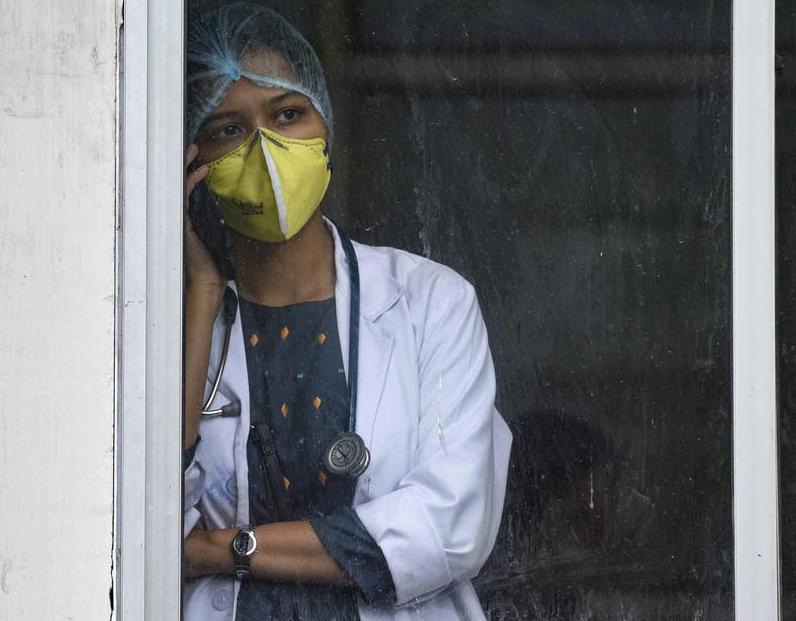

IMAGINE that your teenager was a star athlete, on track for a university athletics scholarship. But then they develop long Covid at the height of the pandemic, meaning they no longer had the lung capacity to run, let alone live independently. If that was your experience, you’re likely to think the government didn’t do enough to protect children from Covid-19, or vaccinate them fast enough.
On the other hand, what if your child developed an eating disorder due to social isolation and depression? In that case, you might think that lockdown measures were disproportionate. If you lost a loved one to the disease, then you might blame government for doing too little. If your small business of 20 years shut down, you might blame government for doing too much.

The point is that all our views on the pandemic, whether we’re a teacher, pub owner, healthcare worker or even a scientist, are coloured by our personal experiences of this huge, global storm.
I’ve been thinking about this in light of a new study that attempts to make sense of the effect the pandemic has had on our mental health.
The latest British Medical Journal systematic review, from a Canadian team of researchers, looks at more than 100 studies from around the world and concludes that the pandemic didn’t result in any major changes in general mental health and anxiety symptoms, and only minimal changes in depression.
This has led to headlines such as “Mental-health crisis from Covid pandemic was minimal”.
What’s needed here is nuance. Only that can capture what has undoubtedly been a traumatic few years – in which millions of people have felt loss, anger and frustration. And this is where general studies on “everyone’s mental health” are misleading.
The pandemic didn’t affect everyone equally. Groups that were badly affected include those with existing mental health conditions, children, people living with disabilities, adolescents and those without financial or social security nets.

The BMJ study does highlight some of these groups and notes that the study didn’t capture the views of children. Children universally faced a difficult few years during a formative time, whether through losing caregivers to the virus, through school closures, or being more exposed to abusive adults inside their homes.
The problem is that studies such as the BMJ’s are used either to argue that lockdowns don’t have any significant impact on population mental health (and, therefore, are not as bad as predicted), or by others to argue that such research itself is flawed completely.
This doesn’t help us. Instead, we need to start coming together on how we heal as a society and recognise that each person’s experience from 2020 to 2022 heavily shapes how they interpret what happened and why.
It’s simply not helpful to continue to argue about restrictions and closures using these kind of generalising studies.
The truth is that they were an extreme public health response, and were only taken up as public policy because of the even worse option facing countries, of imminent (and real) healthcare collapse and mass death.
No one is pro-lockdown; this was about being anti-mass death. Covid-19 from 2020 to 2022 was a once-in-a-century pandemic, most closely related to the 1918 flu pandemic, which involved similar measures such as shutdowns and mask mandates.
 What we should be thinking about is planning ahead for the next pandemic, whether of avian flu or a new pathogen.
What we should be thinking about is planning ahead for the next pandemic, whether of avian flu or a new pathogen.
How do we prepare platforms and solutions (testing, vaccines, treatments) to limit or even completely avoid restrictions and closures?
Humans are social: we live longer when we have meaningful relationships and see others, and we have numerous studies showing that social isolation, especially for certain groups, has negative consequences. Understanding that should be our starting point for the future. ![]()
Courtesy: Guardian News & Media Ltd.
___________
Also Read:
TRUTH VS FALSEHOOD: BBC – Who is afraid?
Mughal Gardens – Name Changed, But Why?
Industrialization versus Environmental Degradation
Punjab – How a deadly cocktail of Agri-Water-Energy nexus going to destroy it?

Disclaimer : PunjabTodayTV.com and other platforms of the Punjab Today group strive to include views and opinions from across the entire spectrum, but by no means do we agree with everything we publish. Our efforts and editorial choices consistently underscore our authors’ right to the freedom of speech. However, it should be clear to all readers that individual authors are responsible for the information, ideas or opinions in their articles, and very often, these do not reflect the views of PunjabTodayTV.com or other platforms of the group. Punjab Today does not assume any responsibility or liability for the views of authors whose work appears here.
Punjab Today believes in serious, engaging, narrative journalism at a time when mainstream media houses seem to have given up on long-form writing and news television has blurred or altogether erased the lines between news and slapstick entertainment. We at Punjab Today believe that readers such as yourself appreciate cerebral journalism, and would like you to hold us against the best international industry standards. Brickbats are welcome even more than bouquets, though an occasional pat on the back is always encouraging. Good journalism can be a lifeline in these uncertain times worldwide. You can support us in myriad ways. To begin with, by spreading word about us and forwarding this reportage. Stay engaged.
— Team PT


Copyright © Punjab Today TV : All right Reserve 2016 - 2024 |